Indigenous Governance Database
allotment
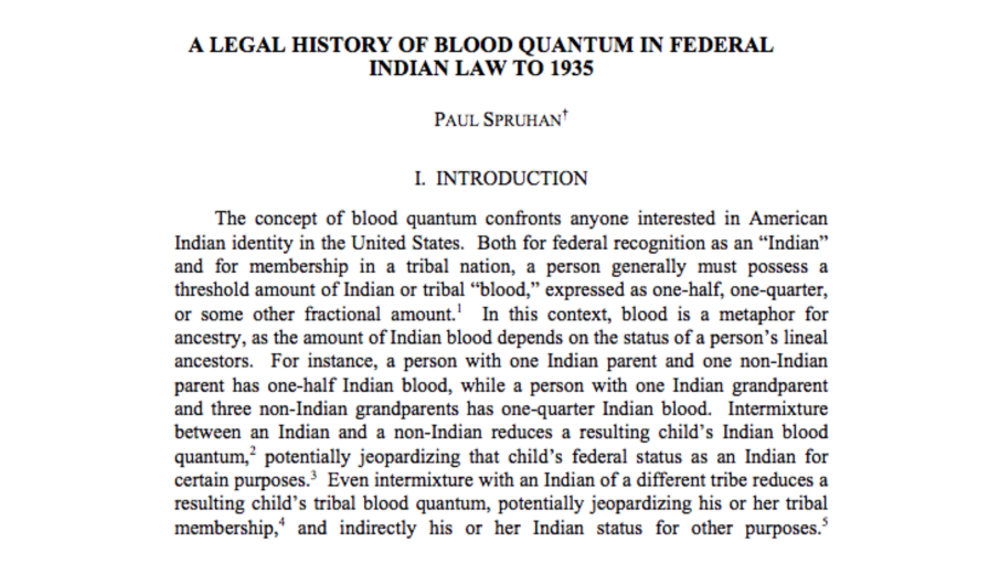
A Legal History of Blood Quantum in Federal Indian Law to 1935
The paper traces the development of the use of blood quantum, or fractional amounts of Indian blood to define Indian in federal law up to the Indian Reorganization Act of 1934. The paper shows that blood quantum was not widely used in federal law until the twentieth century, as the branches of the…
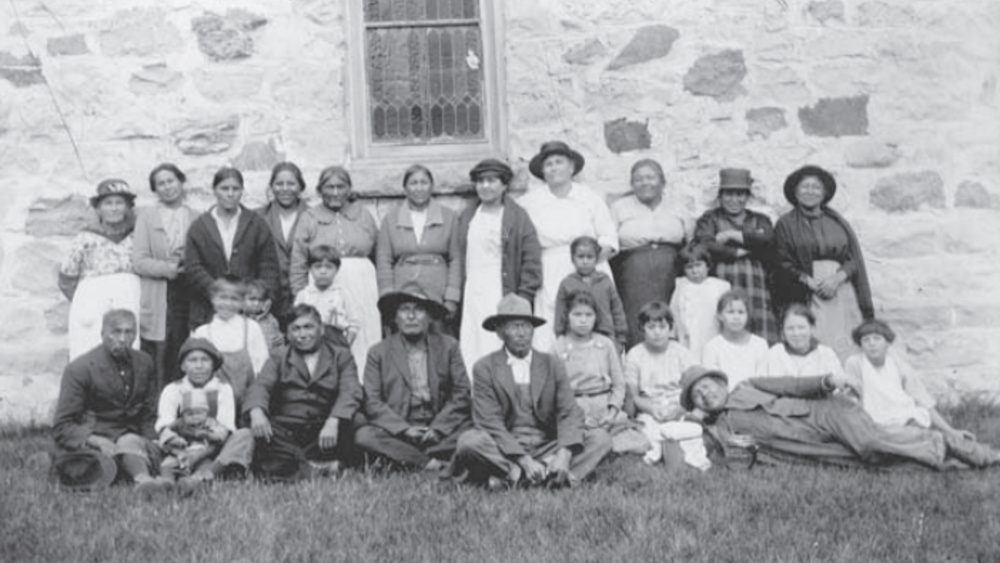
An Anishinaabe Tribalography: Investigating and Interweaving Conceptions of Identity During the 1910s on the White Earth Reservation
This article explores the varied ways in which the Anishinaabeg of White Earth defined themselves during the early twentieth century. It consists of two primary parts. In part 1 I go beyond the artifacts in order to enliven the history, to offer an alternative way of remembering the past. In…
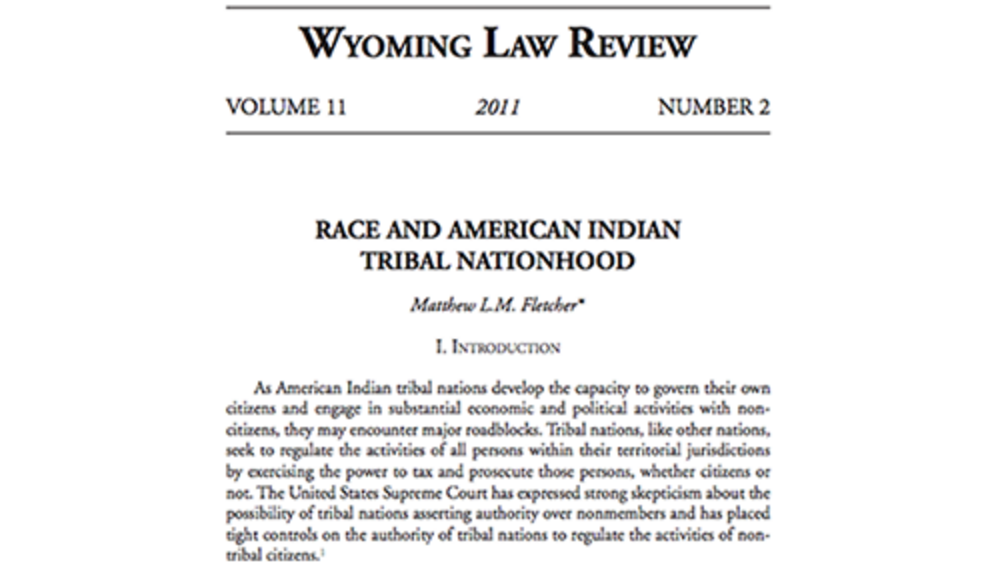
Race and American Indian Tribal Nationhood
This article bridges the gap between the perception and reality of American Indian tribal nation citizenship. The United States and federal Indian law encouraged, and in many instances mandated, Indian nations to adopt race-based tribal citizenship criteria. Even in the rare circumstance where an…
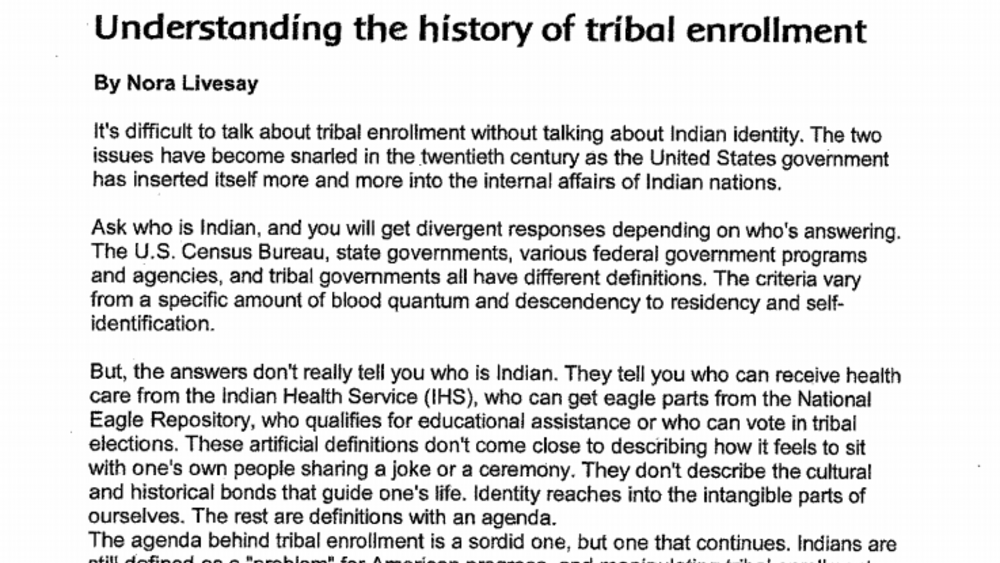
Understanding the history of tribal enrollment
It's difficult to talk about tribal enrollment without talking about Indian identity. The two issues have become snarled in the twentieth century as the United States government has inserted itself more and more into the internal affairs of Indian nations. Ask who is Indian, and you will get…
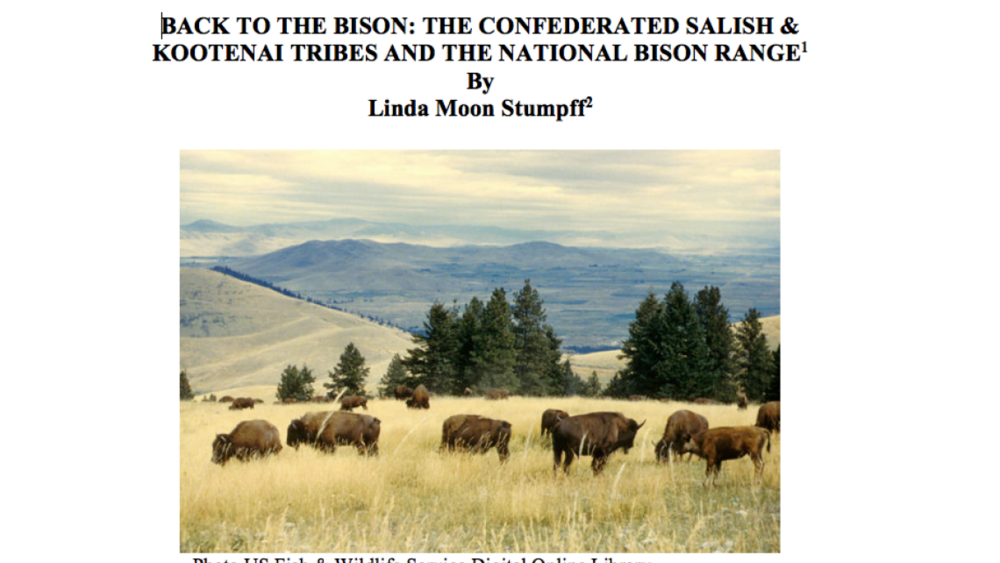
Back to the Bison Case Study Part I
Thirty years after taking over the reins of forestry, recreation, wildlife and other natural resource operations on their reservation lands, the Confederated Salish and Kootenai Tribes (CSKT) established a reputation for environmental leadership in wildlife, wilderness, recreation and co-management…
Pagination
- First page
- …
- 1
- 2
- …
